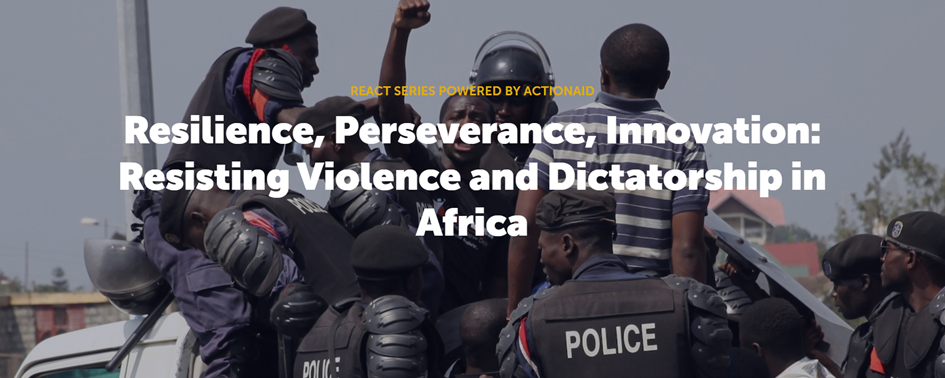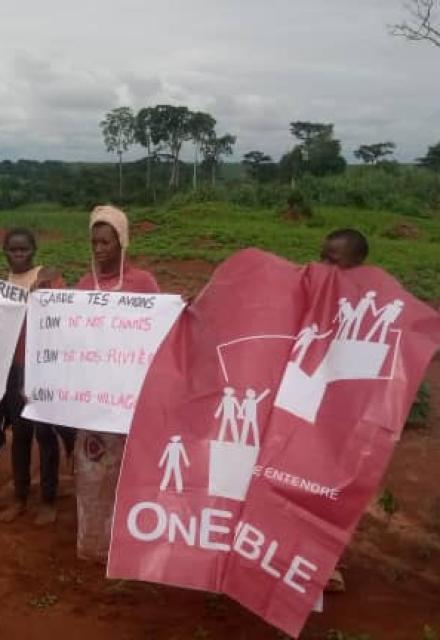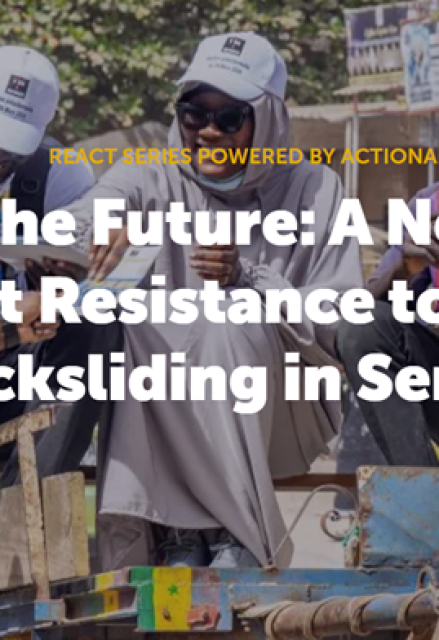Resilience, Perseverance, Innovation: Resisting Violence and Dictatorship in Africa
Despite the independence of African states and the abolition of slavery, African democracies offer very few positive prospects in terms of good governance. The people of Africa are still faced with corruption, democratic backsliding and a range of other ills. As in the past, Africans are not giving up in the face of the predatory oligarchies in power. In many countries, activists and nonviolent movements have emerged to campaign against rulers’ abuse of power and to push nonviolently for good governance.
African civil resistance, especially in Francophone regions of the continent, is most often misunderstood or ignored by the rest of the world. Furthermore, few educational resources and programs for activists are available in French. These linguistic obstacles isolate movements in French-speaking regions of Africa from the rest of the continent and the world. As guest editor of a blog series for REACT, for which this is the opening post, I commissioned four articles from activists in both Francophone and Anglophone regions of Africa about the same theme—nonviolently resisting violence and dictatorship—to help address this challenge. All of the articles will be published simultaneously in French and English, and the series will conclude on April 4 with a webinar in French featuring the authors—with simultaneous interpretation in English, of course.
Above all, the forthcoming blog series highlights inspiring examples of the African resistance of our time. Through articles focusing on activist initiatives in Senegal, the Democratic Republic of the Congo (DRC), Cameroon, Nigeria, Sudan and Libya, the series aims to show how nonviolent activists and movements are organizing in Africa to campaign in a context of violence and repression from state actors, multinationals, financial institutions and armed groups.
The posts in this series will both give insights on struggles in specific places and share lessons on key questions that are relevant to movements beyond these contexts:
- How can mobilization for democracy be maintained over the long term despite democratic backsliding?
- How can movements influence public narratives and environmental policies?
- What alternative strategies can activists draw on in contexts of repression?
- What innovative options can movements use to get round certain forms of repression?
A preview
The series begins in a few days with activist Abdoul Khafor of the Senegalese citizens' movement Y'en a marre (Enough is Enough), which was formed in 2011 in response to the multi-faceted crisis affecting Senegal at the time. In his article, Khafor will explain how, in a context of democratic backsliding—made even more apparent just a few weeks ago when the presidential election was pushed back—the Y'en a marre movement is rethinking and focusing its long-term struggle for democracy and good governance in Senegal.
Then, with Marius Kaptchoum from the Cameroonian movement On Est Ensemble (We are Together), we will discover the struggle of Cameroonian farmers against the devastating agricultural practices of the Société Sucrière du Cameroun (Sosucam), a subsidiary of the French group Somdiaa. This article will explore the potential of movements to influence public narratives and drive forward agro-environmental policies that benefit local communities.
In the third article, artist-activist Eliane Feza will present Bosembo, a video clip advocating for peace and justice for the serious crimes committed in the DRC over the last 30 years. In light of this clip by slam artist Ben Kamuntu and the Goma Slam Session collective he co-founded, this article shows that art can be one of the viable alternative strategies that activists can use to organize, communicate, mobilize and influence.
Finally, Gloire Wanzavalere, LUCHA activist and organizer of the African Bitcoin Conference (ABC) supported by the Human Rights Foundation (HRF), will explain how Bitcoin has enabled some African activists to bypass the financial repression imposed on them by rulers in Nigeria, Sudan and Libya. In this article, we explore the potential that Bitcoin carries as an innovative option that enables movements to resist financial repression—a phenomenon which may sometimes appear harmless to the international community, but in fact is particularly distressing for activists.
-
The four articles offer us the image of an Africa suffering but still resilient and of people subjected to abuse of all kinds but still struggling to improve their daily lives. The experiences shared by the four authors provide valuable lessons for activists around the world. They are also a reminder to both activists—and their adversaries—that no abuse or repression can stop the mobilization of citizens committed to defending their rights. Civil resistance is eternal in Africa and the rest of the world, despite repression and violence.




